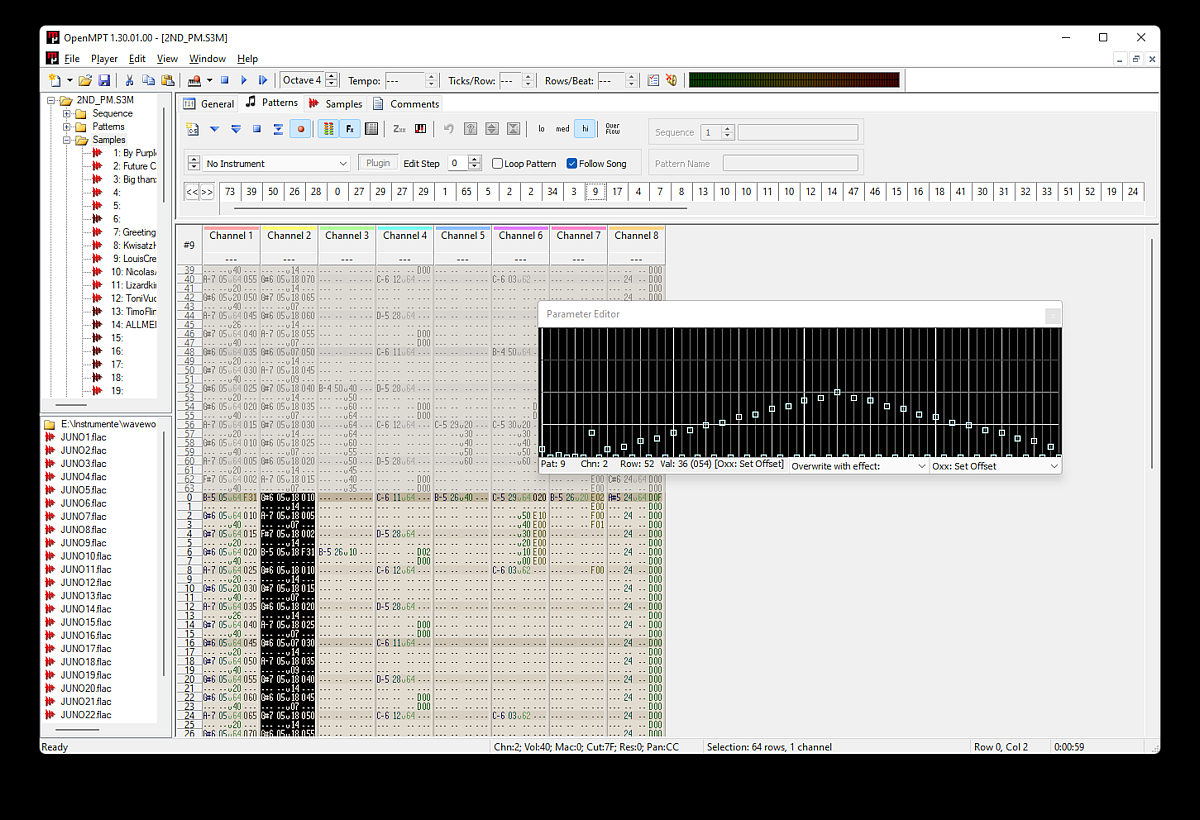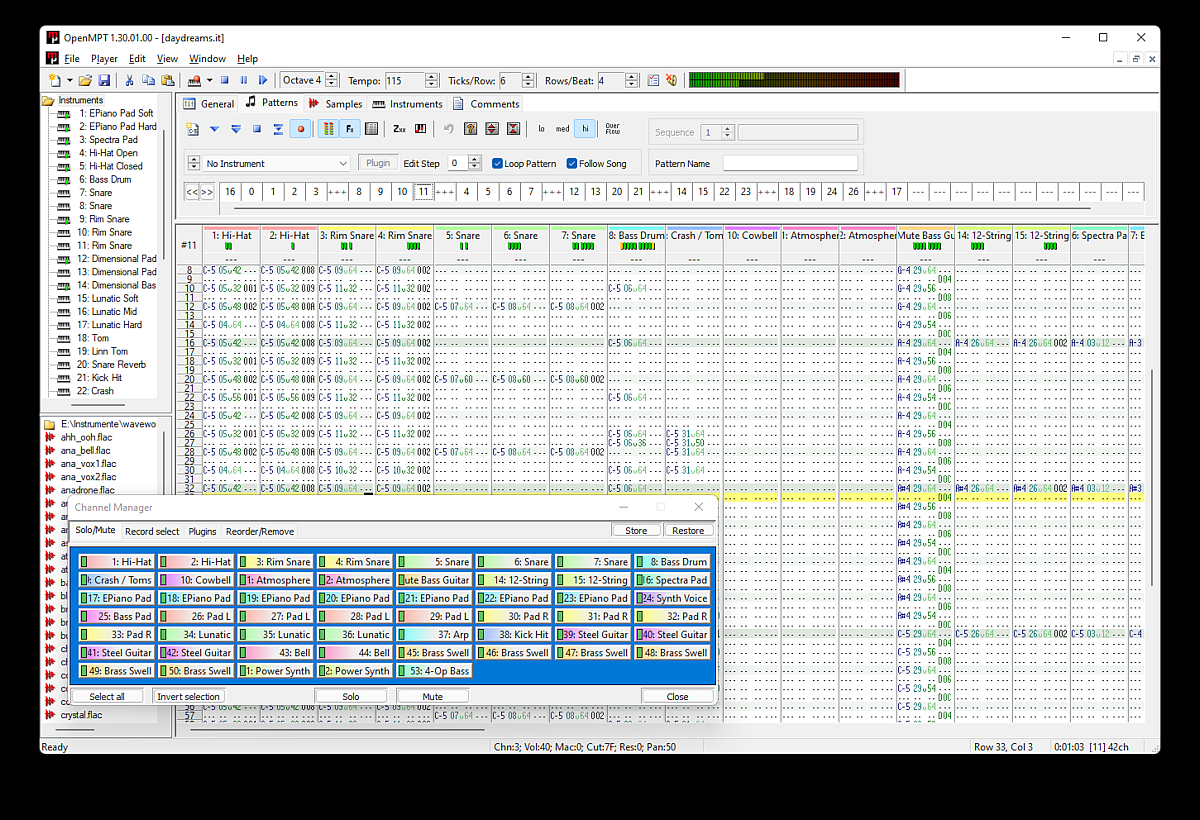


- #Mod xm s3m openmtp mod#
- #Mod xm s3m openmtp software#
- #Mod xm s3m openmtp code#
- #Mod xm s3m openmtp windows#
Most trackers, even newer ones such as Renoise, have interfaces modelled after the older DOS trackers such as FastTracker II.
#Mod xm s3m openmtp windows#
OpenMPT's main distinguishing feature is its native Windows user interface. For this purpose, OpenMPT provides its own plugin bridge, which can be used to run plugins with a different bitness than the host in a separate process, or to run plugin in a sandbox and prevent them from crashing the host application. This allows musicians to use 64-bit VST plugins and make use of the entire physical memory on 64-bit systems. Since OpenMPT 1.23 (March 2014), OpenMPT is also available as a 64-bit application. Until May 2009 (v1.17.02.53) OpenMPT was licensed under the Copyleft GPL-2.0-or-later and then relicensed under the terms of the permissive BSD-3-Clause.
#Mod xm s3m openmtp software#
OpenMPT is distributed as free software and is, as of May 2020, under active development.
#Mod xm s3m openmtp code#
Also based on the ModPlug code is OpenMPT's "sister project" Schism Tracker which contributed several backports of bugfixes to OpenMPT. Lapicque's MPT code was taken up by a group of tracker musicians/programmers and is now known as OpenMPT. The ModPlug Player source code is still closed as of May 2020. ĭue to lack of time, Olivier Lapicque discontinued development of ModPlug Tracker itself, and in January 2004, he released the entire source code under an open-source license. Today, libmodplug is included in many Linux distributions as a default audio plugin for playing module files and is a part of the popular open source multimedia framework gstreamer. This project lay dormant from late 2003 until early 2006, when it was picked up again. In 2001, the source code was released in the public domain, and the mod-playing code was split off into a separate library, libmodplug, maintained as part of the ModPlug XMMS Plugin project. In December 1999, Olivier Lapicque sent the module-playing parts of ModPlug Tracker's source code to Kenton Varda, under the GPL-2.0-or-later, to write a plugin for XMMS based on the code. ModPlug Tracker, along with a player application named ModPlug Player, evolved from this plug-in.
#Mod xm s3m openmtp mod#
OpenMPT was initially developed as a browser plug-in called MOD Plugin, which enabled users to play music and other sounds encoded in module files. I'm trying to get back into doing old-format modules, though, and will be trying my hand at some S3M goodness through OpenMPT, but all I can see using it for is a legacy tracker for the stuff I can't do in MilkyTracker, and easier than I can do in SchismTracker.History MOD Plugin and ModPlug Tracker Jojo does a hell of a job programming it, don't get me wrong, it's solid, and has only gotten better over the years and is an amazing free tool, but I just never liked the workflow. Their plugin handling is weird anyway (you load a list, assign them per channel, then per instrument), and the whole experience tends to feel wonky. I like that FXX/GXX work on MIDI PB signals in OpenMPT, but that was the only win for me, and in Renoise you can automate PB with the MIDI control machine anyway. I used to use OpenMPT, and switched to Buzz because I don't like VSTs, they are usually very inefficient. I don't use it for writing legacy modules, so it's got everything I need. Channel routing, multi-in/out for midi per instrument, macro controllers, the list goes on. Renoise has an amazing sampler I use for synthesis, built-in effects, and low CPU overhead with low latency on my computers, as well as support for Windows and Linux with no compatibility layers.


 0 kommentar(er)
0 kommentar(er)
